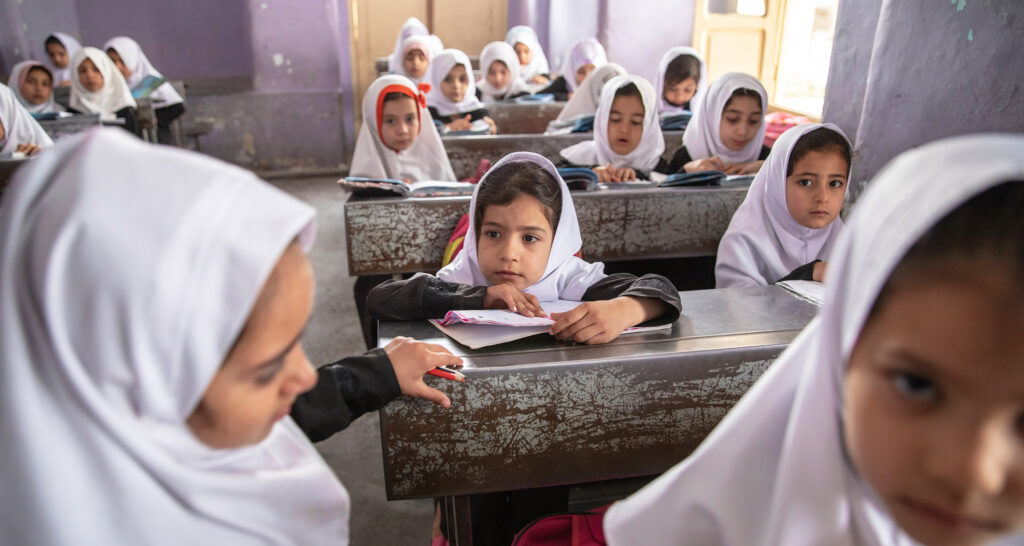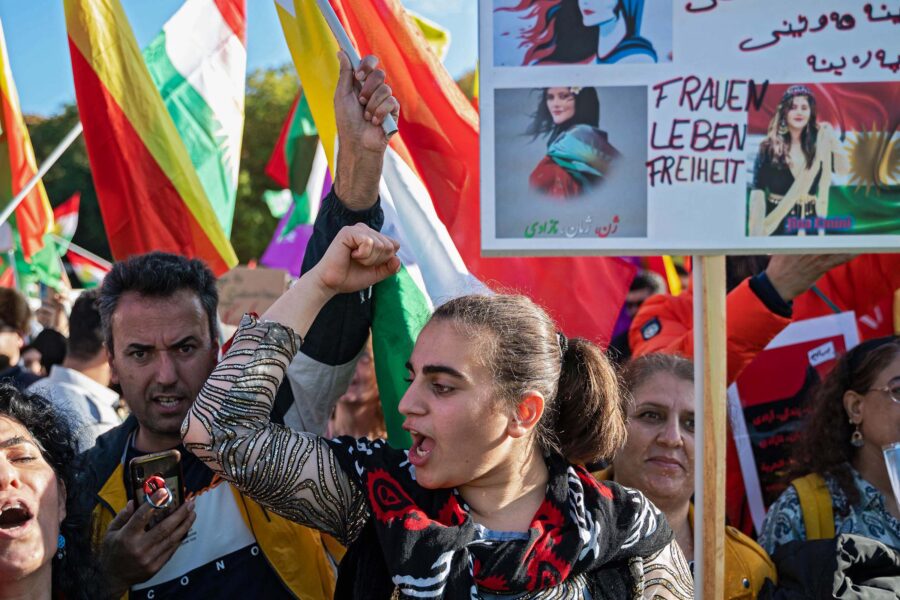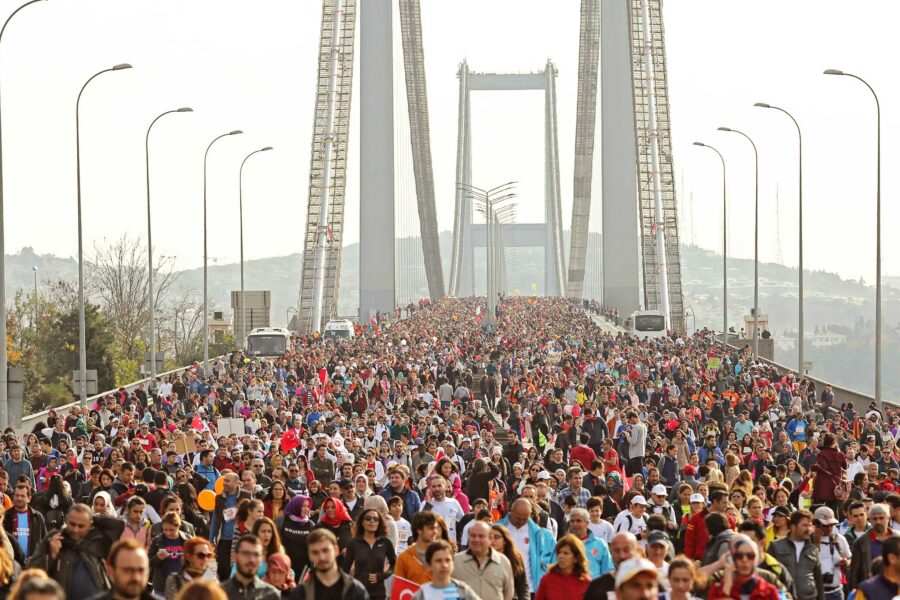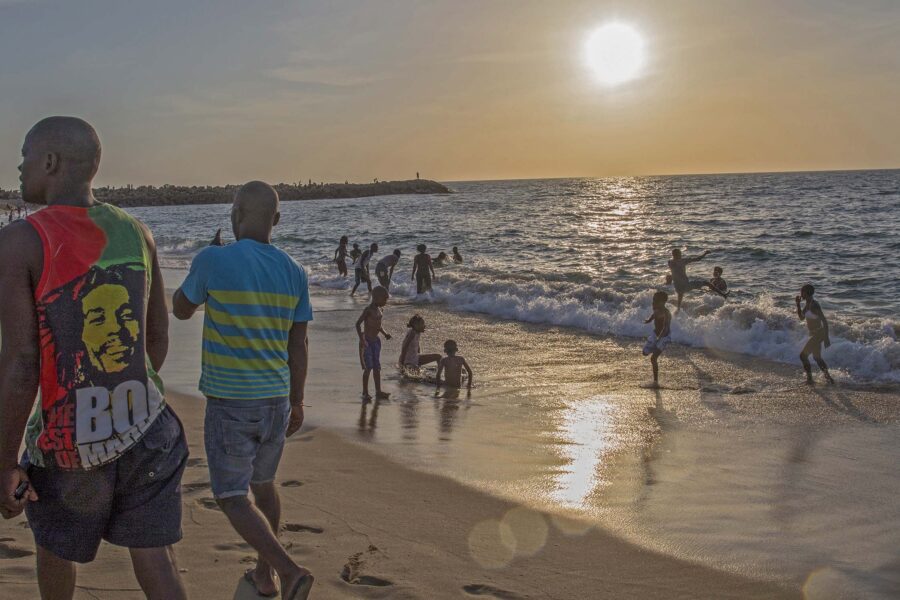In the balance
Humanity’s failure to learn and adapt from repeated crises does not bode well for the bold, transformational changes that must happen urgently if we’re to achieve the world promised by the SDGs. There will be no second chance
Climate — Global

It’s been a fairly exhausting few years for many of us. Wars, coups, the upending of longstanding political status quos, the elimination of fundamental rights we had started to take for granted, the ongoing coronavirus pandemic, the increasingly notable effects of climate change. And then: the onward consequences of all this in terms of collapsing markets, energy insecurity, soaring inflation and disrupted supply chains, and the ongoing drudgery of attempting to keep body and soul together – a task which was already far too difficult for far too many people – have blurred into one seemingly endless travail.
In such circumstances it is hard not to feel jaded. We become so used to hyperbole that its impact is dulled. We are taught to view the experts and analysts who never express surprise at anything as savvy, and thus to believe that – depressing as this all may be – it is predictable and inevitable. Strategies and action plans such as Agenda 2030 or the UN’s 75th anniversary “Common Agenda” stall and falter, meriting barely a shrug.
This edition of SDG Action concentrates on situations of fragility and crisis. It is a luxury that such circumstances scarcely afford us: to take a step back and view them systematically. But we must, else the series of crises will never end, nor will our responses to them ever improve. Our response to the rise of Al Qaeda did little to improve our response to the rise of ISIS. Our response to bird flu, Zika, or Ebola did little to improve our response to COVID. Our response to the 2008 financial crash did little to improve our response to subsequent financial uncertainty. This is a failure of global governance, in particular of global risk management. It requires us to pause, learn, and hold to account.
When we do this, we see that what the fog of seemingly endless crises is concealing is that our world is walking past a fork in the road. In how we fail to prevent and respond to crises and instability we are missing our last chance for a different kind of society.
Go too far into the weeds of the 17 Sustainable Development Goals (SDGs) and their 231 indicators and it starts to feel like a dry and technocratic agenda. In reality, as António Guterres reminded us in his never bettered 2020 Mandela Day speech, it is a “New Social Contract… to ensure that power, wealth, and opportunities are shared more broadly.”
It recasts development as a rights-based blueprint: where society takes responsibility for providing basic needs, unfettering access to opportunities, and protecting individuals from the cruelty or callousness of powerful interest groups.
Writing this piece the day after Roe v Wade was overturned, the day the Pride parade in the capital city of my new home (Norway) was cancelled by a gunman’s killing spree, that appears a very different sort of world to the world in which we live. It is a world in which we would need to make an active political choice to live. But it is a political choice we are currently not making, and if not made soon will be rendered moot.
The window for doing things differently is closing fast. We will soon have ruled out the possibility of living in a temperate world within planetary boundaries. Trust is being lost in a manner which will make it all but impossible to gain back. Aggressive feedback loops are starting to make themselves felt. The direction in which new technologies set our future is being established.
If we choose not to live in the world the SDGs make possible, we owe it to ourselves to look the world we have created by default coolly in the eye. Being among the planet’s more fortunate people, I (like many of you) are shielded from much of the worst of it. But it appears to all of us from time to time.
Until recently I lived in one of the world’s wealthiest cities. The price for doing so was that I frequently had to take my young son to the emergency room because he was unable to breathe. There we would meet other young children who, either because they lived on main roads or had black mould on the walls of their houses, also could not breathe. They were given inhalers and nebulizers because our current politics means giving children medicine to help them breathe is a “better” decision than building a society which would not suffocate them in the first place. Those children are not alone. As Martina Otto reminds us in her piece on cleaning up the air, each of us on average will die two years before our time because 99% of us breathe unsafe air.
The world we are defaulting into allows certain groups to be failed, many far more seriously than this. The SDGs promised us a world in which no one was left behind. Instead, we live in a world where, as Alainna Lynch puts it in her piece on reversing the forces of inequality, “inequality is a foundational value of our social and economic systems.” And if outcomes are uneven, that unevenness is frequently fatal in our increasingly lethal world.
If, as John Podesta argues, biodiversity is the canary in the mine with regards to the overall liability of our planet, then that canary is more likely than not dead – 60% of all the world’s animals have been wiped out since 1970.
This is the form that systematic crises and instability take in our current phase of history. These are not natural or man-made disasters. They are the frequent and predictable consequences of having failed to protect vulnerable groups from an ever more dangerous world.
This would not happen in the world promised by the SDGs. But bringing that world into existence requires us to make a choice to do so. This is the subject the articles in this collection address.
For example, Estherine Lisinge-Fotabong discusses how one approaches development financing in a moment when need is exploding. Paolo Gerbaudo considers how to navigate the information wars, asking: who owns our perceptions of reality? Richard Gowan thinks about what peacebuilding now means in a world where traditional approaches have failed. Justyna Gudzowska tells the story of the criminals getting rich from these crises under the shield of corporate anonymity. And Natalie Samarasinghe navigates the politics of how we get to a different world: the appeal – but the trap – of autocracy, and the potential of democracy far beyond the state.
We have about 2,700 days to achieve the SDGs. Looking back, 2,700 days ago doesn’t seem very long. There were riots in Ferguson, Missouri, in response to a police shooting, a deadly pandemic was sweeping through Africa, and there were wars in Syria and Ukraine. But it’s not just proximity that makes that sound like a familiar world. It is the fact that our society has failed to make a choice to prevent these things from happening again. In the next 2,700 days such a choice must be made, or it never will.





